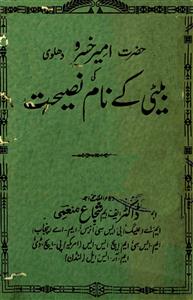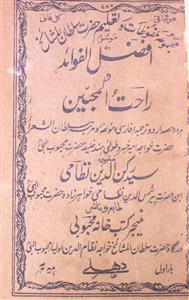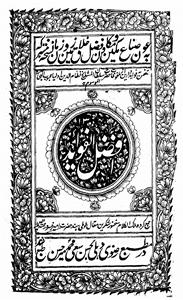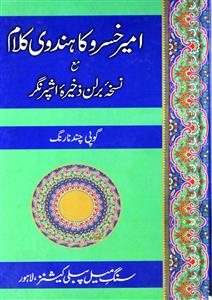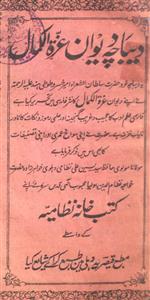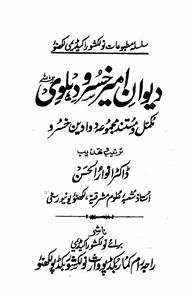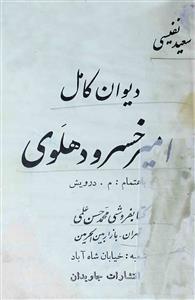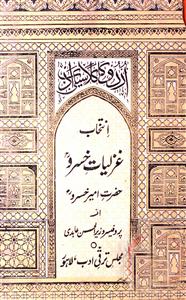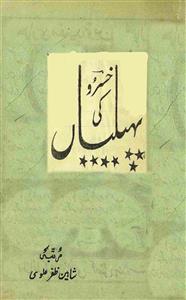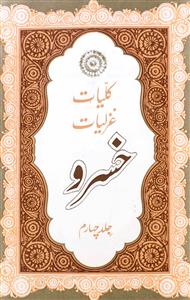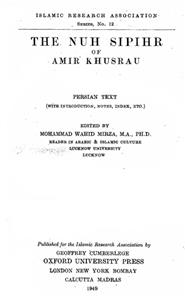About The Book
حضرت امیر خسرو عمیق فکر کے مالک تھے۔ وہ دقیق مسائل کے عیوب و محاسن میں تفریق بڑی آسانی سے کرتے تھے ، خسرو کی فطری ذہانت اور نکتہ رس دماغ معاملات کی تہہ کو فورا پہچان جاتا تھا، ہندوستان کے طو ل و عرض میں آپ کی قابلیت عیاں تھی، لوگ ا ن کے پاس الجھی ہوئی گتھیاں سلجھانے جاتے تھے ، وہ ان کو نصیحتیں کرتے اور ان نصائح کے ذریعہ لوگوں کے مسائل حل کرتے تھے، زیر نظر کتاب میں خسرو کی ان نصیحتوں کو پیش کیا گیا ہے جو انھوں نے اپنی بیٹی کو کی تھیں۔ا گرچہ یہ نصیحتیں ان کے زمانے کے اعتبار سے ہیں تاہم ان نصیحتوں کو پڑھ کر آج کے زمانے سے منطبق کرکے دیکھا جائے تو بھی کافی کار آمد ہیں، کتاب میں شامل نصائح فارسی زمان میں ہیں مگر ان کے نیچے نثر میں اردو ترجمہ بھی پیش کیا گیا ہے تاکہ مفاہیم کے سمجھنے میں اور آسانی ہو جائے۔
About The Author
Born Abul Hasan Yameen-uddin, Amir Khusrau is considered to be the first poet of Urdu-Hindvi. The disciple of the famous Chishti saint Hazrat Nizamuddin Auliya, he was adept in Persian, Sanskrit, Urdu, Hindvi and many provincial languages of India. With an innate penchant for music, he is credited with the invention of musical instruments like the Tabla and Sitar. The art of Qawwali became a convention in Sufi gatherings in Khusrau’s time only. Some of his Khusrau’s Hindvi Geets have become a part of the folk. Besides poetry, he also composed Paheliyan, Kahmukarniyan, and Dhakosle, all of whom became extremely popular. Unable to bear the excruciating grief, he died in 6 months after the death of his Guru Hazrat Nizamuddin Auliya. "Full name Abul Hasan Yameen-uddin Amir Khusrau. Urdu - First Shair of Hindvi. The disciple of the famous Chishti saint Hazrat Nizamuddin Auliya. Persian, Sanskrit, Urdu, Hindvi and many Indian provincial languages were also empowered. Penetrating music and many ragas. And invented musical instruments such as tabla and sitar. Qawwali became common during his time and started trending in Sufi festivals. Wrote many Hindu songs which are still prevalent in the public mind. Along with Shairi, he has done puzzles, kahmukarniya, dhoksale. Also say those who became very popular. Due to not being able to bear the grief of the death of their guru, they died after 4 months. Major compositions - 1. Tuhfat-ul-Sigar 2. Wast-ul-Hayat 3. Matla-un-Anwar 4. Tughlaq-Nama 5. Khaliq Bari 6. Hasht-Bihisht 7. Afzal ul Fawid 8. Majnun-o-Laila
